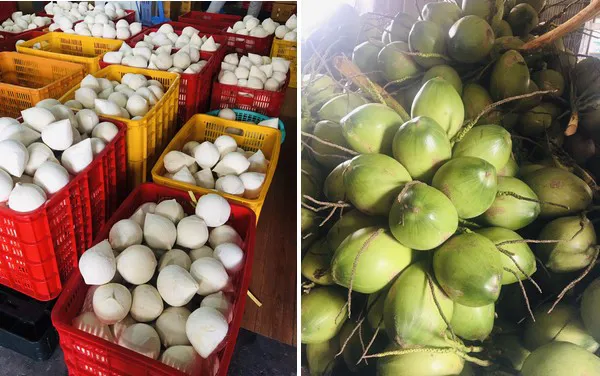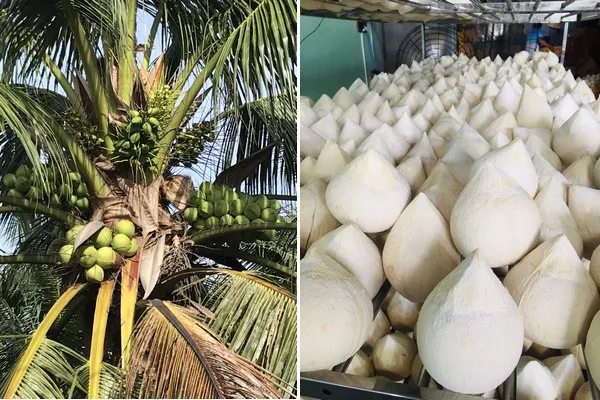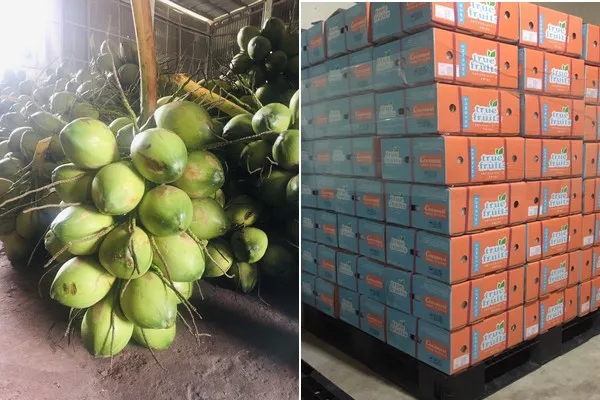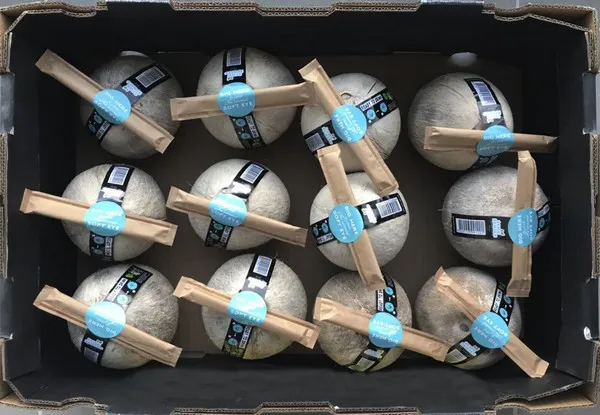The historical drought with saltwater intrusion in Vietnam during the first half of the year has had a big impact on the local coconut sector. With the rainy season coming, the situation improved and the coconut trees are slowing recovering productivity. Anna is a sales manager of a Vietnamese fruit exporter True Fruits Co., Ltd. She reviewed the current situation of the local coconut sector.

The severe saltwater intrusion in the past few months has resulted in crop losing leaves and flowers, in the end, the production was reduced by 20%. “From the end of May until now, the flow from upstream to the Mekong Delta tends to increase. Meanwhile, the southern region has experienced heavy rain, which replenished water for crops and reduced the saltwater intrusion in the Mekong Delta area. The productivity of coconut trees starts improving, and the situation in the production region has improved significantly.” Anna said.

From May till December is the main production season of Vietnamese coconuts. However, due to yield shortage, the raw coconut price of this season is much higher compared with the price of 2019. “The COVID-19 impact is still severe, which caused the reduction of consumption power in Europe and North America. The local retail chains in these markets are not yet fully recovered but they are slowly returning to an acceptable level. But overall, the demand from the overseas market is at its peak.”

The COVID-19 crisis also complicates the logistics of Vietnamese export products. “In recent weeks, the air freight cost has somewhat declined, but is still at a relatively high level (4.6-5.0 USD/kg). As coconuts are not perishable products and can be shipped by low-cost sea freight, it has become our flagship product during this period.”
When talking about the competitive advantage of Vietnamese coconuts, Anna tells us, “The Mekong Delta is the largest coconut production area in Vietnam. Benefiting from its favorable geographical conditions, fruits in this area gain high Brix levels. In particular the Brix of the Xiem variety can reach above 7%. Not only that, the coconut flesh is rich in fat with a crunchy taste and a naturally fresh flavor. We can proudly say that Vietnamese coconuts can satisfy the most demanding customers’ requirements.”

“Besides our existing varieties, this summer we introduced our new “Ready to drink brown coconut” to the market. This product contains rich water and has a high Brix level, and it has a long shelf life of 2 months.” Anna said, “one special feature of this product, is that we used bamboo material for packaging, and the straw and stickers are also made of bamboo. We want to work in an environmentally-friendly way, and we believe the use bio-degradable material in the fruit industry will become a trend. ”
Anna
True Fruits Co., Ltd.
Email: anna@truefruitsco.com
Phone: +84 (0)911 390 037
www.truefruitsco.com
